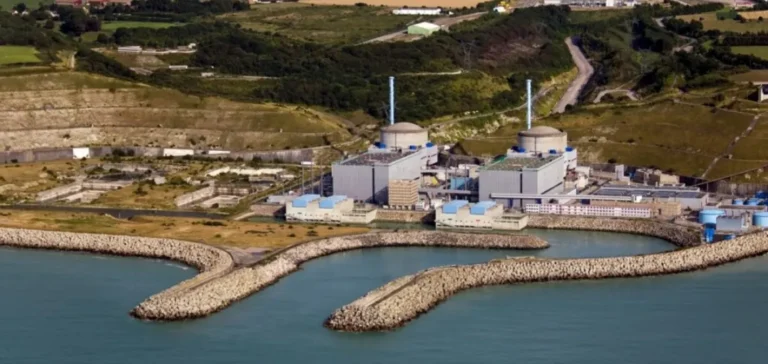EDF is facing a series of concerns raised by the Environmental Authority regarding the construction of two EPR2 nuclear reactors at the Penly site in Seine-Maritime. In an opinion published in October, the independent body highlights uncertainties regarding construction safety, health impacts, and environmental effects of the future nuclear site. This report is part of the assessment procedure for major projects requiring environmental authorisation.
The Environmental Authority considers that several parameters related to the project require further analysis, particularly regarding the risks of submersion due to climate change, chemical discharges into the sea, and the destruction of sensitive marine habitats. EDF plans to build two EPR2-type reactors, each with a capacity of 1,670 megawatts, on the Channel coast.
Risks related to climate hazards and chemical discharges
The report points to what is deemed an “insufficient” integration of climate change in the reactor design. Experts believe the project does not adequately address the risk of submersion caused by rising sea levels and intensified storms. Additionally, the toxic and carcinogenic discharges into the sea are not estimated at the full plant scale, preventing evaluation of their compliance with current regulations.
The authors also note that the project leads to the destruction of notable marine habitats without compensation measures proportional to the expected ecological impact. The report also raises concerns over the lack of clear information on the future dismantling costs of the facilities and the financial provisions that the operator must allocate for waste management.
Documents partially inaccessible to evaluators
The Environmental Authority expresses concerns over access to safety documents, with some sections excluded for security reasons put forward by EDF. This restriction limited the commission’s ability to conduct a comprehensive review, even though the submitted documents sometimes exceed regulatory confidentiality requirements.
EDF responded by stating that environmental protection is an integral part of the EPR2 design. The company confirmed that a detailed reply to the Authority’s opinion will be submitted as part of the public inquiry scheduled for 2026. Preparatory work on the site began after an environmental authorisation was granted in 2024, although the reactor creation permit remains under review.






















